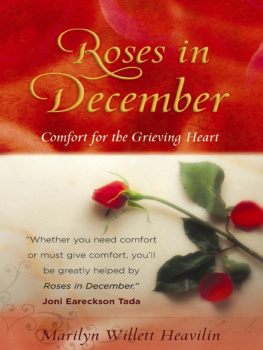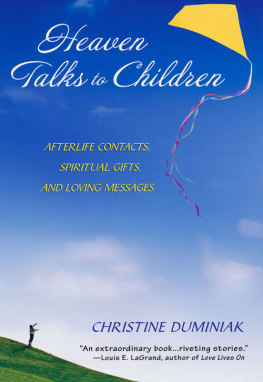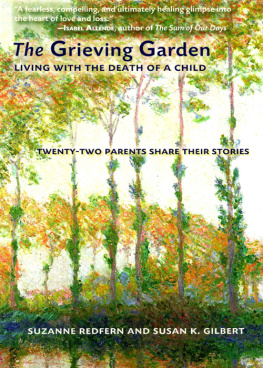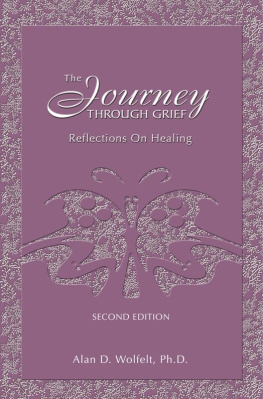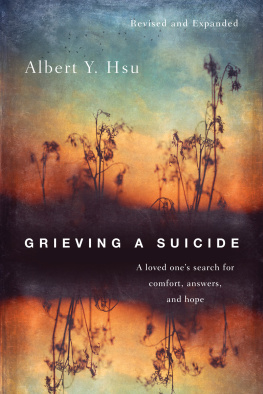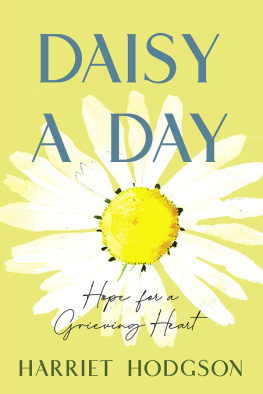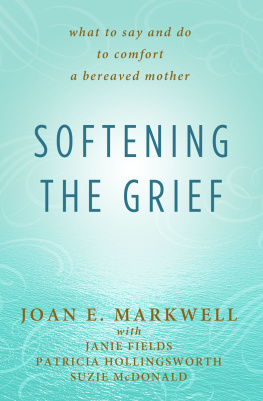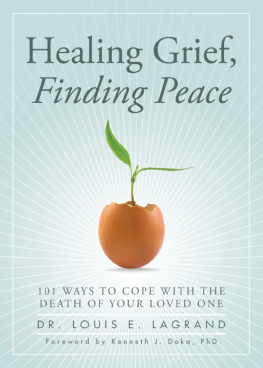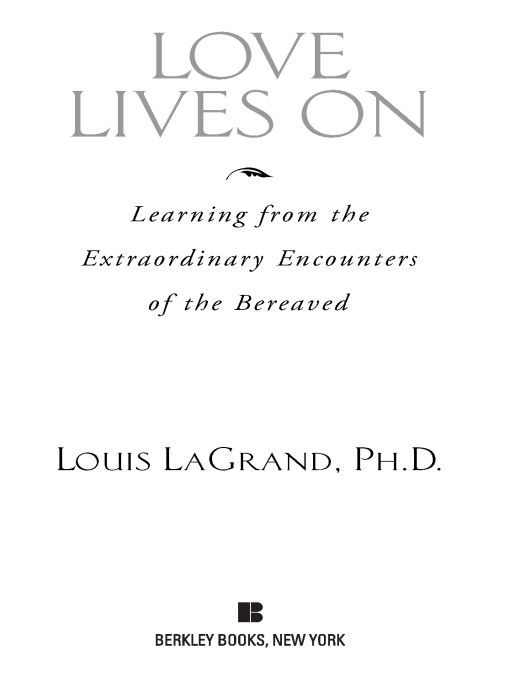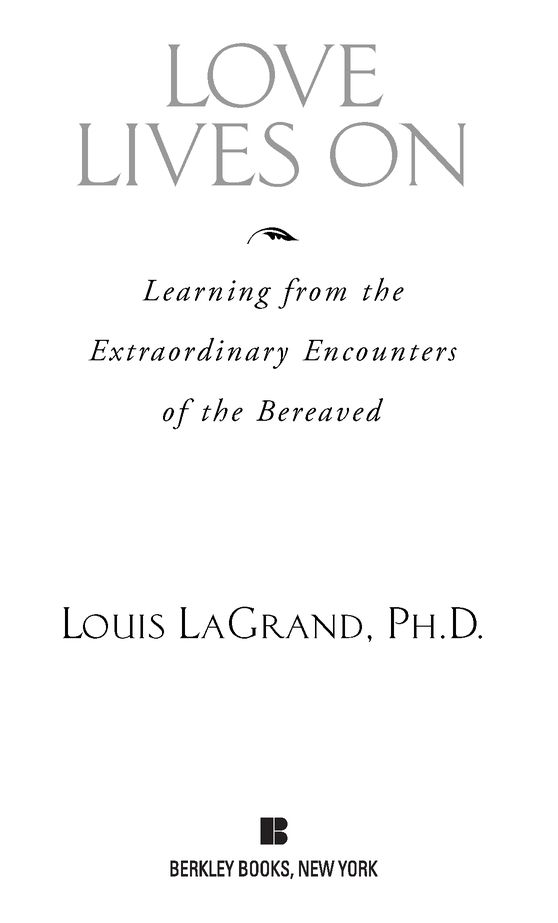Table of Contents
Praise for Love Lives On:
This inspiring book demonstrates that mysterious encounters with the deceased, far from being meaningless hallucinations, are in fact critically important parts of the healing process. Dr. LaGrand shows how we can use these surprisingly common encounters to adapt to loss and return to wholeness.
Bruce Greyson, M.D., Carlson Professor of Psychiatry, University of Virginia Health System
Love Lives On will be an Extraordinary Encounter or EE for
many who read it. It is about the life-changing meanings associated
with experiences with loved ones who have died. Talented
grief counselor LaGrand not only encourages us to seek that
meaning but also shows people how to go about finding it by
delineating the role played by symbol, ritual, tradition, and the
EEs themselves. Drawing on case histories, in several chapters he
describes specific healing and life-affirming approaches to the
Mysteries of Life and Death.
Rhea A. White, Exceptional Human Experience Network, Inc.
Each year, more and more Americans express belief in spirit survival. According to the Harris Poll, in 2003 a majorityincluding almost two-thirds of 25-29-year-oldssaid they believe in ghosts. In this heartwarming and informative book, Dr. LaGrand, a longtime grief counselor and a leading expert on after-death communication, probes the mystery of sensing contact with lost loved ones and offers a wealth of insights to help the grieving deal with their bereavement. Comfort and wise guidance flow from every page.
Sylvia Hart Wright, author of When Spirits Come Calling
Lou LaGrand has probably listened to more stories of Extraordinary Encounters with the dead than anyone alive today. Here he offers hope and appreciation of mystery for the bereaved as he mines those stories for valuable, even life-changing, lessons that they can teach.
Thomas Attig, Ph.D., author of
The Heart of Grief and past president of the
Association for Death Education and Counseling
Love Lives On is a wise and wonderful gift to persons experiencing loss. Even if you have never had an Extraordinary Encounter, the lessons of the book are a source of hope and comfortempowering bereaved persons to transform their grief.
Kenneth J. Doka, Ph.D., professor,
The College of New Rochelle, and senior consultant,
The Hospice Foundation of America
Most Berkley Books are available at special quantity discounts for bulk purchases for sales promotions, premiums, fund-raising, or educational use. Special books, or book excerpts, can also be created to fit specific needs.
For details, write: Special Markets, The Berkley Publishing Group, 375 Hudson Street, New York, New York 10014.
ACKNOWLEDGMENTS
Writing a book is sometimes like being a quarterback on a football team. You may call all the plays, but you cant gain an inch toward a first down without the contributions of many others.
First, I am indebted to all those who have shared their personal experiences with me over the years, especially those whose stories in this book illustrate important concepts for all mourners to heed. Stories have always been potent influences in shaping our lives and in coping with loss. Your willingness to share will continue to give hope to untold numbers of people and carry them forward in the adjustment to their losses.
Next, a very special thanks to all of my colleagues who have read various parts of the manuscript in its formative stages and suggested running a few new plays, especially Tom Toolen, Linda Goldman, Delpha Camp, Harold Ivan Smith, Jeanne Harper, Ralph Rickgarn, Helen Fitzgerald, Gordon Thornton, Dana Cable, Ben Wolfe, and Linda Backman.
And then the help of my agent, Jane Dystel, who patiently and meticulously corrected my miscues, yet told me to keep adding to my playbook. Thanks. To Denise Silvestro and Katie Day at Berkley: Your work has greatly improved this book, and I offer my humblest and deepest thanks.
Finally, and most important, to my best friend, Barbara, thank you for your trust and confidence, and the freedom to be who I am.
INTRODUCTION
SEEDS OF HOPE
In three words I can sum up everything
Ive learned about life: It goes on.
ROBERT FROST
Twenty-five years ago I was teaching a course on bereavement and death at a small liberal arts college within the sprawling State University of New York system.
I was euphemistically labeled the death man on campus by some of my colleagues and many people came to me for help in dealing with the aftermath of the death of a loved one. But one person forever remains etched in my memory bank. Sylvia was a sixty-four-year-old grandmother with short graying hair and deep-set blue eyes who was mourning the death of her beloved twenty-eight-year-old daughter. Sylvia was a student at the college, had made an appointment to meet with me, and then proceeded to tell me the following story.
Before her daughters death, Sylvia had asked her to try to send a sign that she was okay in another existence. Approximately four months later she was taking care of her grandson, helping out by giving him his evening bath. She had told him to stay in the bathtub while she went into his bedroom to get his pajamas. No sooner had she entered his room than she heard him making a commotion, so she tore back into the bathroom to find him trying to climb out of the tub. Whats the matter? What are you doing? she asked. He blurted out: I saw a picture of Aunt Jan and she was smiling. Yes, Aunt Jan, the daughter who had died. This little four-year-old had seen a vision of her face, and he was frightened.
When she finished telling her story, Sylvia hit me with the million-dollar question: Do you think this could have really happened? She was in search of needed validation as she studied my face, desperately seeking some kind of reassurance that perhaps her daughter had sent her the message she had asked for.
I restrained myself from the typical knee-jerk professional response Its all in your head. Having been trained in the scientific method to believe that all such occurrences were illusions or hallucinations, I gulped, paused for a moment, and somehow came out with, I think its possible. To be sure, this was not my scientific training talking. Yet, I was strangely confident that I had said the right thing. In effect, my experience with this graying grandmother was the beginning of my twenty-five-year search for as much information as possible from colleagues and clients alike about what I call Extraordinary Encounters (some people call them spiritual experiences). I was soon to discover that what happened to Sylvia was not an isolated case.
Fast-forward eighteen years later. After interviewing scores of people who had had Extraordinary Encounters (EEs), a friend suggested that I start going back to the people who had shared their stories with me in the first few years of my research to see if there were any positive long-term aftereffects. Of course, I decided to start with the first client who had shared her saga with me. On a return visit to the college to teach in summer school (I had since moved to another job), I contacted her and asked her my million-dollar question: Did the experience you had with your grandson help you through the years in any way?


